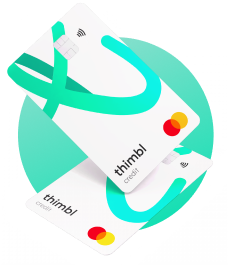Could I get a credit card if I'm unemployed, or on a low-income?
Low Income and Unemployed Credit Cards




‘Can I get a credit card if I’m unemployed?’ and ‘can I get a credit card if I’m on a low income?’ are two frequently asked questions. While some credit card providers could be willing to consider applications from those who are unemployed or on a low income, there’s a lot to think about before you make a decision about whether to apply.
Is it possible to get a credit card if I’m unemployed?
Are you looking for information on credit cards for the unemployed? If you’re unemployed, it might be possible for you to get a credit card, although this will depend on a number of factors, such as your financial circumstances, your credit score, and whether you have any income – including your pension or benefits – regularly paid into your bank account.
It’s worth noting that for many credit card providers, being in employment is one of the main eligibility requirements. If you don’t have a regular source of income, some providers will be unable to consider your application for a credit card.
I’m unemployed and on benefits; could I get a credit card?
You might have asked, ‘Can I get a credit card if I’m on benefits?’ If you’re unemployed and in receipt of benefits, it’s worth noting that some providers may count certain benefits as a form of income.
Can I get a credit card if I’m retired?
You could get a credit card if you’re retired, although again, you’ll need to check the eligibility criteria of your chosen provider before you apply.
Some providers may class your pension payments as a regular source of income.
You should be aware that some credit card providers also have an upper age limit for applicants.
Could I get a credit card if I’m on a low income?
This will depend on the credit card provider’s individual eligibility criteria. Some providers may have a minimum income requirement that you’ll need to meet before you make an application for a credit card for people on a low income.
Will I need to provide proof of income for my credit card application?
If you’re eligible for a credit card and choose to make a full application, you could be asked to provide proof of your income.
Proof of income could include your most recent wage-slip and confirmation of any benefits you receive. You may be asked to demonstrate that these payments are paid directly into your bank account, which can usually be done by sharing a recent bank statement or through Open Banking.
Open Banking is a safe and secure procedure carried out by authorised third parties, such as providers. With your permission, Open Banking enables your chosen provider to access the recent transactions in your bank account with a read-only view.
Before you apply for an unemployed or low-income credit card
If you do find a provider who is open to considering applications from those who are unemployed or on a low income, there are things you should consider before you go ahead.
- You will need to think very carefully about how you’ll repay the money you owe. Remember, you should never use your credit card to spend more money than you need to or can afford to repay.
- You might feel capable of managing your repayments now, but would you still be able to cover the cost if your situation changed, for example, your benefits were reduced, or you were unable to work?
- If you make a late repayment or miss one altogether, you could be charged a fee. This will also have a negative impact on your credit score and could affect your chances of approval if you need to apply for credit again in the future.
- A credit card that’s suitable for people who are unemployed or on a low income could come with a higher interest rate and a low credit limit. Your credit limit is the total amount of money you can borrow on your credit card, although this should never be seen as an incentive to spend money that you don’t need to or can’t afford to repay. The money you spend on your credit card is called the ‘balance,’ and if this isn’t paid off in full each month, it will accrue interest. You’ll need to make at least the minimum repayment amount due on your credit card balance each month - these repayments will include interest.
- Repaying a credit card should never leave you unable to cover the cost of your essential monthly outgoings, such as your mortgage or rent, bills, and food shopping. If you’re concerned that your repayments could affect your other financial commitments, you might wish to take a step back, explore your options, and do some research into credit card alternatives
Can I get a thimbl Credit Builder Credit Card if I’m unemployed?
We’re sorry, but you cannot be considered for a thimbl credit card if you’re unemployed.
The eligibility criteria set by our trusted provider, Lendable Ltd*, requires all applicants to be in employment.
Can I get a thimbl Credit Builder Credit Card if I’m on a low income?
You can check your eligibility for a thimbl credit card if you earn a minimum monthly income of £800 after tax.
You can check your eligibility for a thimbl Credit Card if you:
- Are between the ages of 18 and 70;
- Are a UK resident with at least 1 year's UK address history;
- Have an active credit account that has been open for a minimum of 12 months; and
- Do not already hold a Zable credit card.
Lendable Ltd is unable to consider applications from anyone who has declared bankruptcy or is in an Individual Voluntary Arrangement (IVA).
How does the thimbl Credit Builder Credit Card work?
The thimbl Credit Builder Credit Card could help you do just that: build up your credit score and work towards a healthier credit position.
- Use your thimbl credit card to pay for a necessary, affordable purchase
- Make at least the minimum repayment amount each month until your balance has been cleared. Where possible, you should try to make more than the minimum repayment amount. If you pay your balance in full and on time each month, you won’t be charged interest.
- Your repayment habits will be reported to the credit reference agencies (CRAs), and, in time, you could see an improvement in your credit score.
- Credit builder credit cards may work most effectively when used alongside other credit-building methods, such as registering to vote and checking your credit report for errors. It’s also important to keep on top of any existing credit commitments and ensure that all your bills are paid on time.
The thimbl credit card comes with a manageable, personalised credit limit between £200 and £2,000 to help with responsible spending. Please note that if approved, the credit limit you’re offered will depend on your individual circumstances.
I can’t afford my credit card repayments; what should I do?
In this situation, you should contact your credit card provider as soon as possible. They will talk you through the next steps that you’ll need to take and will share any options that may be available to help ease some of the pressure.
I need help with money; who can I speak to?
If you’re worried about your finances, please don’t suffer in silence. You can access free, confidential money and debt management support through a range of charities and organisations, including StepChange, MoneyHelper, Citizens Advice, and National Debtline.
*The thimbl Credit Builder Credit Card is powered by Zable. Zable is a trading style of Lendable Ltd. If you choose to make a full application, a creditworthiness assessment will be carried out by Zable. This will consist of a hard search and a further check powered by Open Banking. A hard search will remain on your credit file for up to 12 months and multiple hard searches within a short period of time could have a negative impact on your credit score. Any credit obtained upon successful application will be provided by Lendable Ltd.

Page last reviewed: 15th August 2025
Page reviewed by: Harry Lawrance
You get all this with thimbl
Tap and go
Quick and easy contactless payments up to £100.
Secure banking app
Manage your credit card online, wherever and whenever you like, with the free mobile app.
A trusted service
Over 4,500 positive reviews from our customers.
48.9% APR Representative (variable)
Quick links








Worried about money?
If you're worried about the cost of living, need support with budgeting, or think you might need debt advice, StepChange could help. They offer free and impartial support and help hundreds of thousands of people every year to deal with their debts and take control of their finances.
To find out how StepChange could help you, take the free Money Health Check. It's quick and easy to complete, and will give you a personalised recommendation on what to do next.
Meet the team
Head of Compliance
Head of Partnerships
Managing Director, thimbl
Marketing Manager, thimbl
Financial Content Writer
Frequently asked
questions
If you've got a question, you may just find the answer you're looking for here. If not, please visit our contact us page and get in touch.
What will my credit limit be?
You will always be made aware of any credit limit changes to any credit cards you have beforehand, and you do not have to accept a credit limit increase if you don't feel it's right for you.
What happens if I fail to make my repayments?
Missed payments will be reported to the credit bureaus, and your account will appear as in arrears. You will be charged a late fee, which is usually around £12. Your credit rating is also likely to decline as a result.
You should try to make your missed payments as soon as possible.
If you're struggling to keep on top of your repayments, you can find free, impartial advice from MoneyHelper, StepChange, Citizens Advice and National Debtline
If you want to know more about how credit cards work, you can read our blog.
Did you find this article helpful?
Let us know how we can be more helpful
Please leave your anonymous feedback to help us keep improving.
Need help or support?
Whether it's a question or you just need support, we're here to help.







